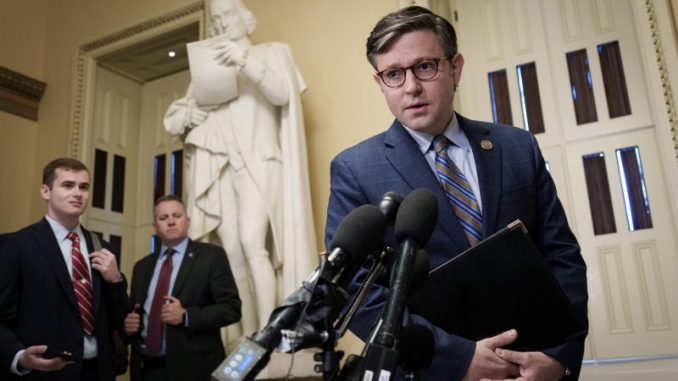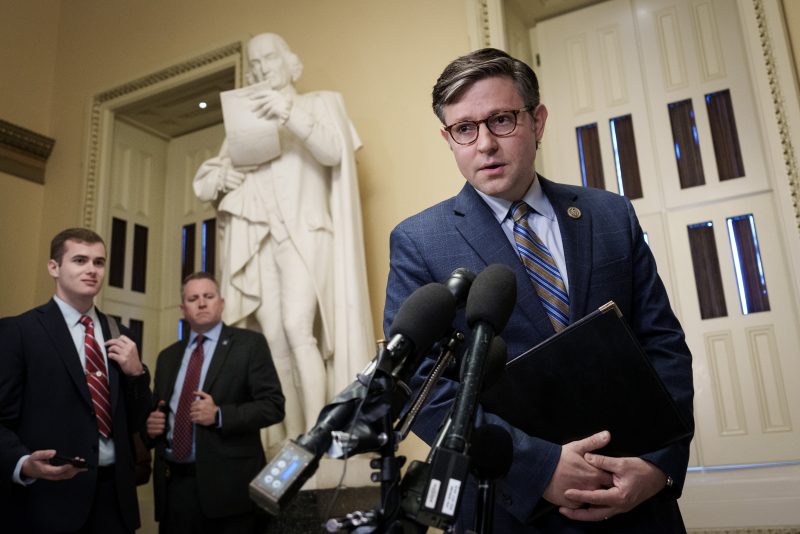

OAN’s Stephanie Stahl
9:26 AM – Sunday, November 12, 2023
House Republicans are currently pursuing a two-step government funding plan as Congress approaches another spending deadline Friday.
Advertisement
The plan was introduced by newly elected House Speaker Mike Johnson during a GOP conference call on Saturday. While Johnson embraced the right-wing members of his conference by proposing the two-step approach, he did not fully concede to their demands for deep spending cuts. Instead, the package extends funding at current levels.
“This two-step continuing resolution is a necessary bill to place House Republicans in the best position to fight for conservative victories,” Johnson said in a statement after speaking with GOP lawmakers in an afternoon conference call. “The bill will stop the absurd holiday-season omnibus tradition of massive, loaded up spending bills introduced right before the Christmas recess.” Johnson said in a statement Saturday.
The first bill, extending funding until January 19th, includes allocations for military construction, Veterans Affairs, transportation, housing, and the Energy Department. The second part extends funding until February 2, covering the rest of the government. Notably, neither bill includes additional aid for Israel or Ukraine.
Although the two-step approach was championed by Republicans, it faced skepticism from many senators who deemed it a complex solution. However, given that funding for agencies remains at current levels, Democrats may find it challenging to reject.
While some Republicans had considered alternative options, including a more straightforward stopgap bill, the GOP remained divided. The Freedom Caucus favored the laddered approach, while appropriators preferred a “clean” stopgap bill. Representative Chip Roy, part of the House Freedom Caucus, opposed Johnson’s plan for lacking the deep spending cuts sought by the right.
White House press secretary Karine Jean-Pierre criticized Johnson’s plan, characterizing it as a recipe for more Republican chaos and shutdowns. House Minority Leader Hakeem Jeffries also opposed the two-step continuing resolution, viewing it as a right-wing joyride with potential economic consequences.
As the GOP navigates its strategy, questions loom about how Democrats will respond to Johnson’s plan. The approval of the bill in the House hinges on Johnson securing a rule to set debate parameters, with the minority party typically voting against it. If a rule cannot be passed, the bill would require a two-thirds majority under suspension of the rules, necessitating significant Democratic support.
The ultimate level of Democratic support will influence the GOP’s floor strategy. Failure to pass a spending plan by Friday could lead to a government shutdown, affecting various operations unless Congress intervenes.
Shutdowns have broader economic consequences, potentially impacting unemployment rates, GDP growth, and borrowing costs on a national scale.
Stay informed! Receive breaking news blasts directly to your inbox for free. Subscribe here. https://www.oann.com/alerts
.

